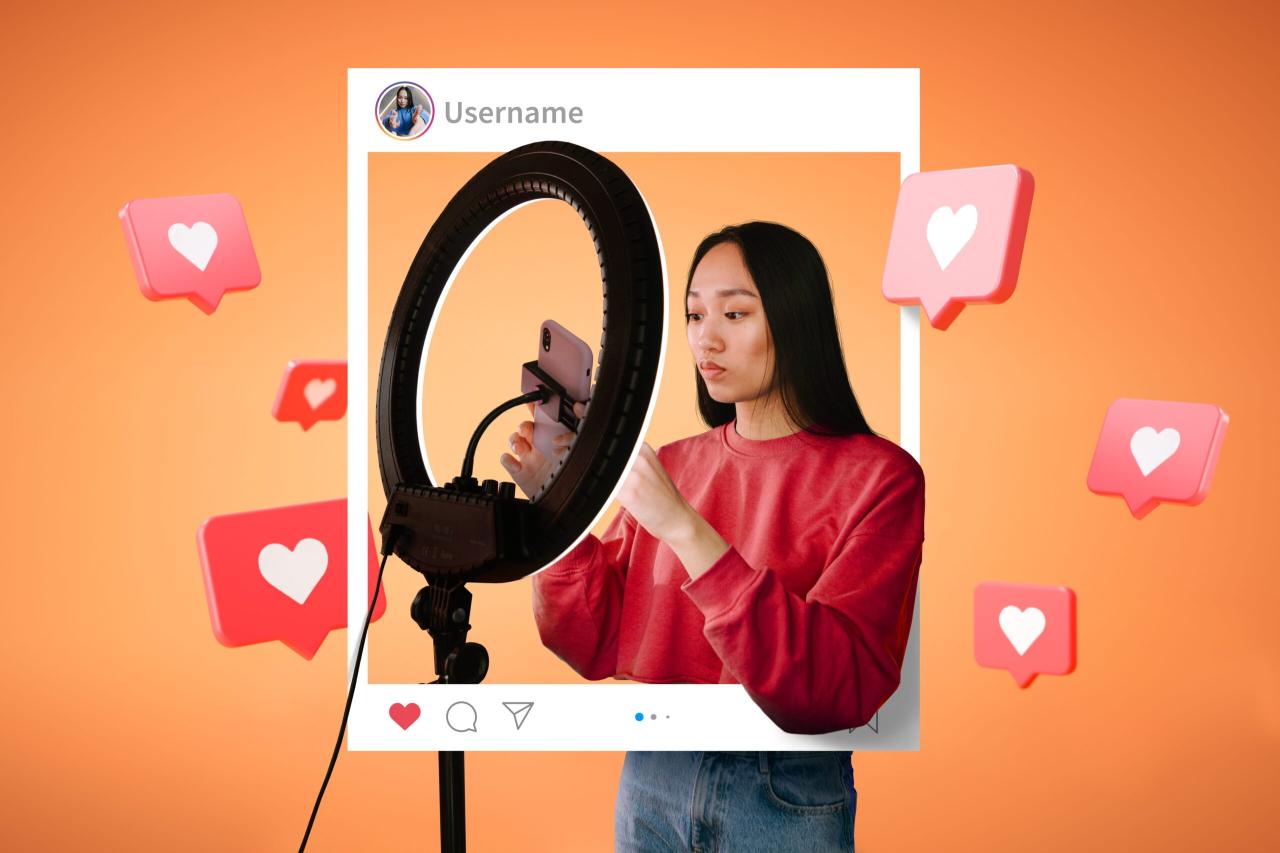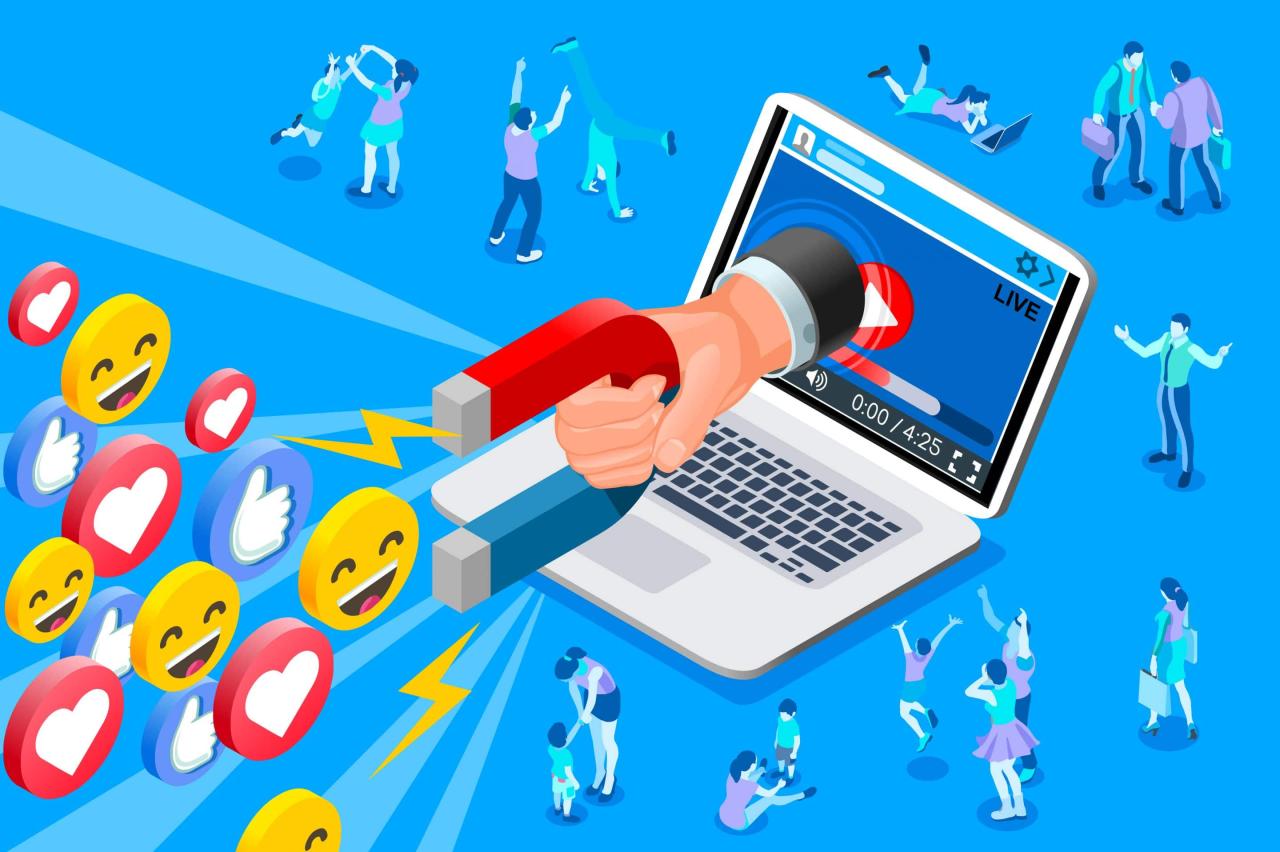Influencer Marketing Overview: Digital Media And Influencer Marketing
Digital media and influencer marketing – Influencer marketing leverages individuals with a substantial following on social media or other digital platforms to promote brands and products. It involves collaborations between businesses and influencers who have built a loyal and engaged audience.
Influencers vary in their reach and engagement levels, ranging from micro-influencers with a smaller but highly engaged following to macro-influencers with a vast audience. The choice of influencer depends on the target audience and campaign objectives.
Benefits of Influencer Marketing
- Increased brand awareness and reach
- Enhanced credibility and trust
- Higher engagement and conversion rates
Challenges of Influencer Marketing
- Finding the right influencers who align with brand values
- Ensuring transparency and disclosure in collaborations
- Managing expectations and measuring the effectiveness of campaigns
Measuring Influencer Marketing Effectiveness

Measuring the effectiveness of influencer marketing campaigns is crucial to ensure their success. By tracking and analyzing key metrics, marketers can optimize their strategies and maximize their return on investment (ROI).
The key metrics used to measure influencer marketing effectiveness include:
- Reach:The number of people who see the influencer’s content featuring the brand or product.
- Engagement:The number of people who interact with the influencer’s content, such as likes, comments, and shares.
- Conversion:The number of people who take a desired action, such as visiting the brand’s website or making a purchase.
To track and analyze campaign performance, marketers can use a variety of tools and platforms, such as:
- Social media analytics:Most social media platforms provide analytics tools that track metrics such as reach, engagement, and conversion.
- Influencer marketing platforms:There are dedicated influencer marketing platforms that provide tools for tracking and analyzing campaign performance, including reach, engagement, and ROI.
- Third-party analytics tools:There are also third-party analytics tools that can be used to track influencer marketing campaigns, such as Google Analytics and Mixpanel.
By using these tools and metrics, marketers can gain insights into the effectiveness of their influencer marketing campaigns and make data-driven decisions to optimize their strategies and maximize their ROI.
Strategies for Successful Influencer Marketing

Influencer marketing is a powerful tool that can help businesses reach new audiences, build trust, and drive sales. However, it’s important to have a well-developed strategy in place to ensure success.Here is a step-by-step guide to developing and implementing an influencer marketing strategy:
- Identify your target audience.Who are you trying to reach with your influencer marketing campaign? Once you know who your target audience is, you can start to identify influencers who have a following that overlaps with your own.
- Select relevant influencers.Not all influencers are created equal. When selecting influencers, it’s important to consider their reach, engagement rate, and overall brand alignment. You should also make sure that the influencer’s values and beliefs align with your own.
- Develop a clear campaign brief.Once you’ve selected your influencers, it’s important to develop a clear campaign brief that Artikels your goals, objectives, and expectations. This will help to ensure that everyone is on the same page and that the campaign is executed smoothly.
- Track your results.It’s important to track the results of your influencer marketing campaign to measure its success. This will help you to identify what’s working and what’s not, so that you can make adjustments as needed.
Types of Influencer Collaborations
There are a variety of different types of influencer collaborations, including:* Sponsored posts:Influencers create and publish content that promotes your product or service.
Product reviews
Influencers provide their honest opinion about your product or service.
Giveaways and contests
Influencers host giveaways or contests that promote your product or service.
Brand ambassadorship
Influencers represent your brand and promote your products or services over a long-term period.The type of collaboration you choose will depend on your goals and objectives.
Managing Influencer Relationships, Digital media and influencer marketing
It’s important to manage your influencer relationships effectively to ensure a successful campaign. Here are a few tips:* Communicate regularly:Keep your influencers informed about your campaign goals and objectives.
Be responsive
Respond to your influencers’ questions and requests promptly.
Be supportive
Offer your influencers support and resources to help them create successful content.
Be fair
Compensate your influencers fairly for their work.By following these tips, you can develop and implement a successful influencer marketing strategy that will help you reach your target audience, build trust, and drive sales.